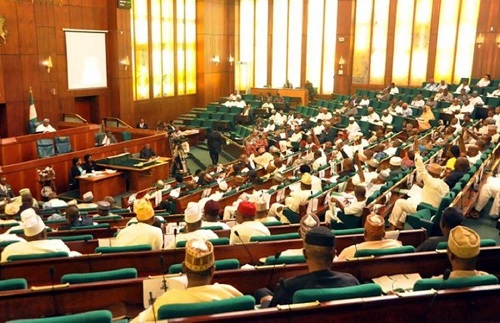Hot Stories
Recent Stories
Lawmakers Oppose Bill to Increase Education Qualifications of President, Governors, NASS Members
Posted by Thandiubani on Tue 13th Feb, 2024 - tori.ngOnanuga argued that leaving education qualifications at the secondary school certificate level is inadequate for the country.

Members of the House of Representatives have opposed a bill that aims to increase the educational qualifications of President, Governors and members of the National Assembly.
The bill however encountered resistance and failed to gain approval in the House.
Sponsored by Oriyomi Onanuga, the bill was debated on Tuesday, and after over two hours of deliberation, it was ultimately stepped down.
Leading the debate, Onanuga argued that leaving education qualifications at the secondary school certificate level is inadequate for the country.
She advocated an upward revision to a minimum of a university degree for all elective positions.
“Are we saying our students have no reasoning?” she questioned during her lead debate.
Supporting the bill, Babajimi Benson emphasized that it was overdue, saying, “I sponsored the same bill in the last assembly. It is what the House should support. Anyone opposed to this bill should be asked if their children are not in universities.”
Six other lawmakers, including Minority Leader, Kingsley Chinda, Majority Leader Julius Ihonvbere, and Leke Abejide, spoke in favour of the bill.
Chinda argued that since primary school certificates are insufficient for private employment, they should not be deemed acceptable for public offices.
Abejide expressed concern, saying, “We cannot have mediocrity in running the affairs in a nation or a country. It is very dangerous.”
However, seven lawmakers voiced opposition to the bill. Ahmed Jaha from Borno State emphasized that certification does not equate to wisdom and urged colleagues to maintain the current constitution.
Aliyu Madaki, also opposing the bill, remarked, “Your leadership quality is not determined by education.”
Facing growing opposition, Onanuga eventually stepped down the bill as more members expressed disagreement with its intent.
Top Stories
Stories from this Category
Recent Stories












































